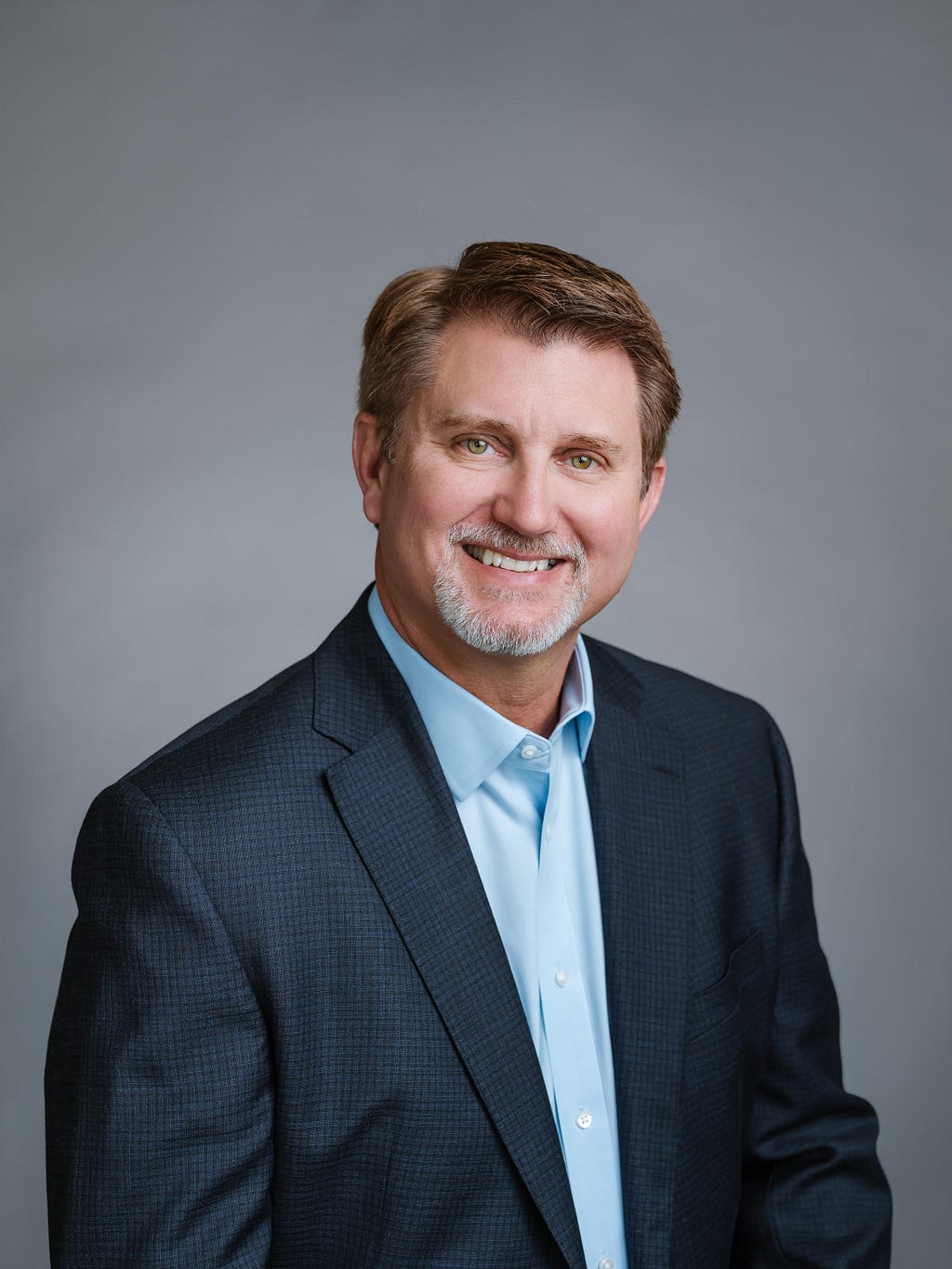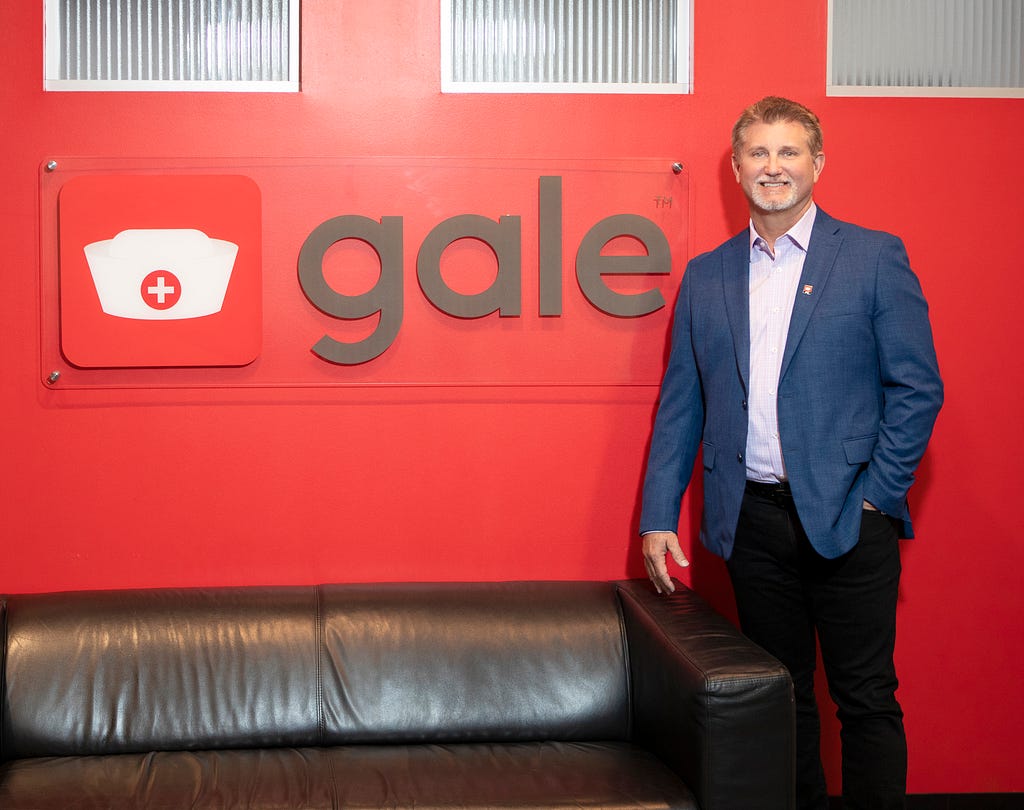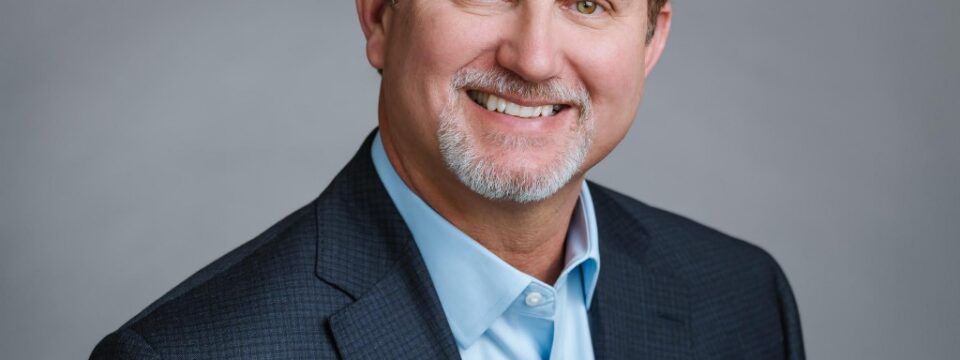Health Tech: Tony Braswell On How Gale Healthcare Solutions’ Technology Can Make An Important Impact On Our Overall Wellness

Define the problem you are trying to solve. My experience searching for healthcare staffers confirmed to me there was a staffing shortage and that there had to be a more efficient way to match open positions with nursing staff. If you can offer people a real solution to a real problem, you’re far more apt to have success.
In recent years, Big Tech has gotten a bad rep. But of course many tech companies are doing important work making monumental positive changes to society, health, and the environment. To highlight these, we started a new interview series about “Technology Making An Important Positive Social Impact”. We are interviewing leaders of tech companies who are creating or have created a tech product that is helping to make a positive change in people’s lives or the environment. As a part of this series, I had the pleasure of interviewing Tony Braswell who created an app to allow nurses to work when and where they want. With massive burnout after nearly three years of COVID, Gale gives nurses flexibility, control of their schedules and same-day pay. It’s a game changer that could help end the nation’s critical nursing shortage.
Braswell, founder and CEO of Gale Healthcare Solutions, is tackling the national nursing shortage by empowering nurses with more control over when and where they work. It’s part of their mission of ensuring no person goes without care. With an industry-leading healthcare staffing app, Gale is now one of America’s fastest-growing private companies on the Inc. 5000 list.
Thank you so much for joining us in this interview series. Before we dive in, our readers would love to learn a bit more about you. Can you tell us a bit about your childhood backstory and how you grew up?
I grew up on a tobacco farm in eastern North Carolina. It was hard work, but it gave me a great work ethic. The best part to me back then was that we got paid every day when we were done. Fast forward 50 years, I offer that to my clinicians — something most companies still don’t do. I’m really grateful to be able to offer that benefit to our nurses and nurse aides. I know so many of them personally, and this is a huge help in terms of their being able to make ends meet.
Can you share the most interesting story that happened to you since you began your career?
I got cancer when I was in my mid-twenties. I’m actually grateful for that, as it stopped me dead in my tracks and got me thinking seriously about what I wanted to do and how I wanted to live. It was right after that that I started my first business — a Tampa newsletter that showed job openings to help people find work. As it turns out, I’m still in that line of work today. I feel very fortunate to have built a career on helping people find the work they need, and also, on helping to improve healthcare for those who can’t care for themselves.
None of us are able to achieve success without some help along the way. Is there a particular person who you are grateful towards who helped get you to where you are? Can you share a story about that?
My Mom and Dad. Neither of them had a chance to go to college. They did everything they could to give my sister and me opportunities they didn’t have. They worked literally from sun up to sun down their whole lives. What stands out to me is that they never complained about being tired or really anything. And they did mostly physical work. If I’m having a tough day, no matter what it is, I think of them. Don’t quit. Just stay focused on what you’re trying to get done.
Can you please give us your favorite “Life Lesson Quote”? Can you share how that was relevant to you in your life?
There’s a poem called “The Dash,” by Linda Ellis. It says that when you’re gone, it’s not when you were born or died that matters — it’s the time between those years. I really believe that. In part because of my cancer, I know our time is limited. I want to be sure I’m using my time — my dash — to make life better for my family, my employees, my nurses and the many people that are counting on us for care.
You are a successful business leader. Which three character traits do you think were most instrumental to your success? Can you please share a story or example for each?
Our whole management team just recently took a personality test, and boy did it nail me. My profile summary is an innovative problem-solver, outside-the-box thinker, undaunted by failure. Gale is a product of all three of those traits.
First, I knew there was a better — more innovative — way to connect nurses with healthcare facility needs. I was — and still am — relentless in figuring out how to do that better.
Second, I thought outside the box for our industry. To the best of our knowledge, Gale was the first app of its kind that provided on-demand staffing in temporary healthcare staffing, and the first to offer same-day pay to clinicians. We’ve got a number of others replicating our model, but we’re still at the forefront of our industry because I and my team keep looking for new ways to make our service for our nurses and healthcare partners better. We’re fortunate as we’re more than a great technology company. We’ve got a team with deep healthcare experience, which means we really know this industry.
Three, I’m not afraid to take a risk if I believe in what I’m doing. Launching Gale was one of the biggest risks I’ve ever taken. I’d been working in this business with a traditional staffing model for 25 years. Calling, texting one nurse at a time! I wasn’t sure if my clients or nurses would accept this completely different model. But I knew continuing what we were doing wasn’t ever going to make much difference. Getting them to try Gale was hard and one of the things I’m most proud of. I didn’t let the initial resistance — which was to be expected and understandable — keep me from pursuing it. I’ll tell you when I knew Gale was a success. I was at work one day and said — it’s so quiet! The phones had stopped ringing because the technology was doing the work for us.
Ok super. Let’s now shift to the main part of our discussion about the tech tools that you are helping to create that can make a positive impact on our wellness. To begin, which particular problems are you aiming to solve?
We’re trying to solve a problem that affects countless individuals and their families every day — the shortage of nursing staff to provide care in nursing homes, assisted living facilities and other senior care communities. We launched Gale Healthcare Solutions — named in honor of the founder of modern nursing, Florence Nightingale — in 2016 to offer a more efficient approach to healthcare staffing. Under the old model, we spent most of our day calling and texting a limited pool of nurses to try and find someone available to go to an open shift. It was like being a hamster on a wheel, with little ability to grow.
How do you think your technology can address this?
Using the Gale platform, healthcare facilities post open shifts and clinicians go on their app and choose among those work options. Rather than us calling and texting, the technology does the work instead. They’re able to schedule themselves in seconds! Now in our seventh year, we’ve built a national clinical workforce of 54,000 nurses and nurse aides. Along with our technology, we’ve been an industry leader in another important innovation: providing clinicians with same-day pay. By empowering nurses to create their own schedules and paying them quickly, we’re getting more nurses to work so that more people get the care they deserve.
Can you tell us the backstory about what inspired you to originally feel passionate about this cause?
I spent 25 years in healthcare staffing, where I relied upon constant calling and messaging to try to fill open shifts. One day, I saw my son order a bottle of ketchup online. I thought it was ridiculous, but of course, today, we all order things daily. When I saw that he was able to get such a small item that fast, I knew the same approach could and should be used for a much bigger need — nurses to help healthcare facilities find staff. The very next day, we started exploring the concept of an app and six months later, we launched Gale.

How do you think this might change the world?
Staffing shortages affect countless individuals every day. Anyone who has a loved one in a healthcare facility, such as a nursing home or senior care facility, understands the importance of having sufficient staff. And what it means when they don’t. In the past year, Gale has doubled the size of its national clinical workforce, and expanded services to include travel nurses and permanent employee placements so that healthcare facilities have a suite of options to meet their staffing needs. We also have begun licensing our software to help other staffing companies expand their service, as well. We know that the more our proven technology is used, the more people that will get care.
Keeping “Black Mirror” and the “Law of Unintended Consequences” in mind, can you see any potential drawbacks about this technology that people should think more deeply about?
Our technology is a win for healthcare facilities, healthcare workers, and patients. Some might say it potentially hurts healthcare by encouraging nurses to quit their jobs and work a temp schedule instead. But that’s not what our experience has shown, as many of our staff have full time jobs. They accept additional work through Gale because they can choose shifts when and where they want and get their pay as soon as they’re done. By empowering nurses, we believe we can help keep more nurses in the profession. This includes those that don’t work for us, but who are working in facilities we serve. By preventing them from working short-staffed, we help address the stress and burnout that can cause some to quit nursing.
Here is the main question for our discussion. Based on your experience and success, can you please share “Five things you need to know to successfully create technology that can make a positive social impact”? (Please share a story or an example, for each.)
1. Define the problem you are trying to solve. My experience searching for healthcare staffers confirmed to me there was a staffing shortage and that there had to be a more efficient way to match open positions with nursing staff. If you can offer people a real solution to a real problem, you’re far more apt to have success.
2. Keep it simple. Our smartphone app is based on a very simple premise — connect healthcare facilities with nurses who are available to work. Gale offers a simple and elegant basic design. In a similar fashion, as we think about enhancements, we always come back to the key question of — how can we most quickly and easily serve the facility or the nurse.
3. Don’t forget about the people part of the equation. Technology is so powerful, and it’s enabled us to expand on an exponentially larger scale. But we’re more than a tech company. We also bring a strong human element. We have a deep understanding of the everyday challenges that impact the people in our industry. This informs how we continue to improve our technology. We also provide support staff so our nurses and healthcare partners can reach someone if they need help.
4. Know your strengths. Figure out what you know to be true and what you do really well. Then find others who can help you fill in the gaps, or take things to the next level. I have a computer science background, I worked in IT in the early years of my career, and I launched an app that has helped revolutionize our industry. But as we’ve grown, I knew I needed a lot more tech talent. And that’s why we recently brought on a new CTO from Google.
5. Look for opportunities and seize them. Once we saw how well Gale worked, we began thinking about other ways to use the technology. We’ve broadened our client base to serve hospitals and ambulatory surgical centers, and we’re now licensing our software to help other healthcare staffing firms expand their service capabilities. Most recently, we used the Gale proven model to help our parent company launch a similar staffing platform to help healthcare and other sectors with non-clinical staffing needs.
If you could tell other young people one thing about why they should consider making a positive impact on our environment or society, like you, what would you tell them?
Find a problem you’re passionate about and keep working to solve it.
Is there a person in the world, or in the US with whom you would like to have a private breakfast or lunch, and why? He or she might just see this, especially if we tag them. 🙂
Right now, I’d love to sit down with Reed Hastings, the founder of Netflix to learn more about how he’s navigated to keep his company at the forefront of the industry he’s helped disrupt in such a big way. I’d also enjoy talking with him about how he got the idea for the company, which reminds me a bit of my own. Like him, I had no idea if anyone would use what I built! And finally, I’d like to talk with him about his work on educational reform. Maybe he would have ideas to help with nursing schools. Along with technology that connects more nurses to work opportunities, addressing the nursing shortage also requires getting more nurses trained. We recently launched the Gale Healthcare Foundation to support nursing scholarships. It’s a start on what I hope will be a lot more work in this area in the future.
How can our readers further follow your work online?
Visit galehealthcaresolutions.com and follow the company on Facebook, Instagram, LinkedIn and Twitter.
Thank you so much for joining us. This was very inspirational, and we wish you continued success in your important work.
Health Tech: Tony Braswell On How Gale Healthcare Solutions’ Technology Can Make An Important… was originally published in Authority Magazine on Medium, where people are continuing the conversation by highlighting and responding to this story.
